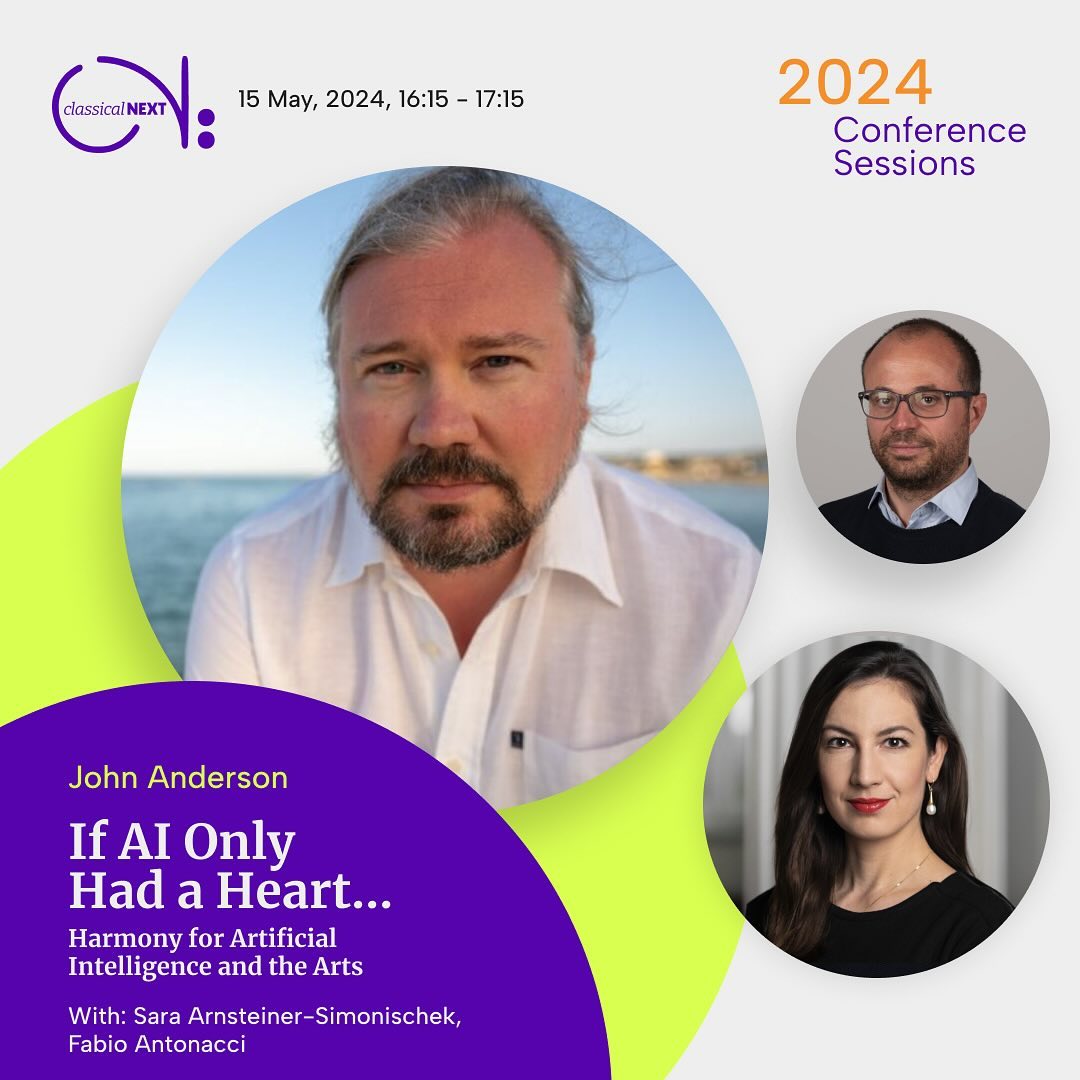ODRATEK’s founder John Anderson, one of the coauthors of the Repertorium Project, will lead a panel discussion with Fabio Antonacci (Associate Professor, POLIMI) and Sara Arnsteiner-Simonischek (Director of Communication & Digital Mediation, Konzerthaus Berlin) at Classical:NEXT in Berlin on May 15 to address the potential for AI to positively impact the classical music sector and help safeguard music’s rich heritage while propelling the music industry into an innovative, human-centred digital future.
▶️ How can AI be a potent tool for cultural preservation and archival work and study?
▶️ How can AI empower musicians through ground-breaking new sound processing tools?
▶️ How can AI enable fully immersive symphonic concert experiences for at-home audiences?
▶️ How can AI offer ensembles cost-effective tools that democratise surround-sound recording?
▶️ How can AI grant orchestras global outreach?
▶️ How can AI offer venues the possibility of offering concerts in the metaverse in acoustic holograms, as 360° fully navigable audio-visual virtual halls?
All this and more.
And just as AI will help shape the future of music, it is our responsibility to help shape the future of this technology from our heritage, training and evolving it to align with our shared cultural values to ensure a harmonious future. Beauty can save the world, and the future will be built from our past.





